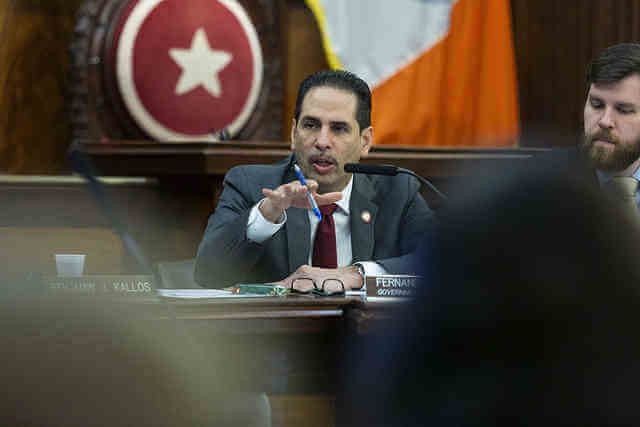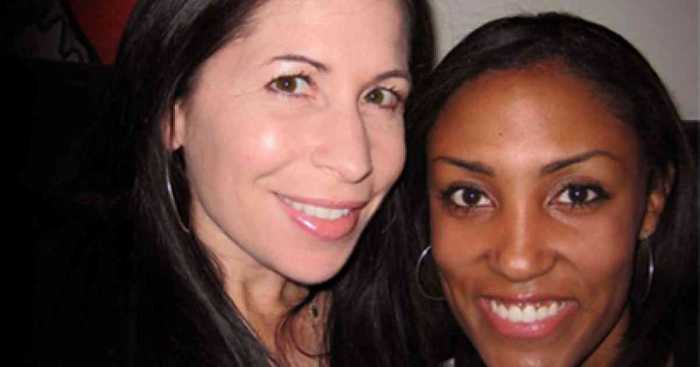A wedding cake Jack C. Phillips advertises on his website. | MASTERPIECECAKES.COM
BY ARTHUR S. LEONARD | A unanimous three-judge panel of the Colorado Court of Appeals has affirmed that state’s Civil Rights Commission ruling against Masterpiece Cakeshop, Inc., and its proprietor, Jack C. Phillips, for its refusal to provide services to a gay couple celebrating their wedding.
The August 13 ruling continues an unbroken string of court decisions rejecting small business claims that they can decline goods and services to same-sex couples based on their First Amendment right to free exercise of religion.
According to the court’s opinion by Judge Daniel M. Taubman, in 2012 Charlie Craig and David Mullins married in Massachusetts and then returned home to Colorado to hold a wedding celebration. When they asked Masterpiece Cakeshop to create a wedding cake for them, Phillips declined, saying he does not provide that service for same-sex weddings because of his religious beliefs.
Three-judge Colorado panel rejects First Amendment religious freedom, artistic expression claims
Craig and Mullins filed a complaint with the Colorado Civil Rights Division, invoking the Colorado Anti-Discrimination Act (CADA), which bans discrimination because of sexual orientation by public accommodations. After an administrative law judge ruled in favor of the couple, rejecting Phillips’ religious exemption defense, the Colorado Civil Rights Commission affirmed that decision, issuing a “cease and desist order” requiring the company to take remedial measures, including staff training, and to file quarterly reports for two years documenting all cases in which service was denied.
Taubman’s decision makes no mention of any fine or damages in the Commission’s ruling.
Phillips appealed to the courts, claiming he did not discriminate because of Craig and Mullins’ sexual orientation, but rather because he disapproved of same-sex marriages on religious grounds. He noted his willingness to sell the two men other baked goods and, somewhat facetiously, asserted he would also refuse to design a cake for two heterosexual men who wanted to celebrate their wedding.
The appellate panel rejected this rationalization. Phillips was trying to argue he was not acting based on the couple’s status as gay men but rather their conduct in holding a wedding celebration. Taubman observed, “The United States Supreme Court has recognized that such distinctions are generally inappropriate.” Justice Anthony Kennedy’s 2003 opinion in Lawrence v. Texas, which struck down sodomy laws nationwide, concluded that a law criminalizing homosexual conduct is “in and of itself an invitation to subject homosexual persons to discrimination.” And, Taubman noted, Justice Sandra Day O’Connor’s concurring opinion in that case said, “While it is true that the [challenged sodomy law] applies only to conduct, the conduct targeted by this law is conduct that is closely correlated with being homosexual. Under such circumstances, [the] law is directed toward gay persons as a class.”
Taubman also invoked the New Mexico Supreme Court’s 2013 ruling that rejected Elane Photography’s claim that it could refuse wedding photography services to a lesbian couple.
“Masterpiece admits that it refused to serve Craig and Mullins ‘because of’ its opposition to persons entering into same-sex marriages, conduct which we conclude is closely correlated with sexual orientation,” Taubman wrote. “Therefore, even if we assume that CADA requires plaintiffs to establish an intent to discriminate… the [administrative law judge] reasonably could have inferred from Masterpiece’s conduct an intent to discriminate against Craig and Mullins ‘because of’ their sexual orientation.”
Taubman’s opinion also made short shrift of Phillips’ claim that designing a cake is artistic expression protected by the First Amendment.
“To the extent that the public infers from a Masterpiece wedding cake a message celebrating same-sex marriage, that message is more likely to be attributed to the customer than to Masterpiece,” he wrote. And Taubman noted, “Phillips denied Craig’s and Mullin’s request without any discussion regarding the wedding cake’s design or any possible written inscriptions,” so it is unclear exactly what speech he would be “compelled” to engage in when decorating the cake.
On Phillip’s religious free exercise claim, the court noted that under established Supreme Court precedent, an individual is not excused by their religious beliefs from complying with neutral laws of general application. Under that standard, because the CADA — the state’s anti-discrimination act, which furthers the state’s legitimate interest in eliminating discrimination in places of public accommodation — is such a law, no business or individual can claim a religious exemption from complying with it. The only exemption generally recognized under the law is for religious organizations that claim an exemption from anti-discrimination laws, for example, in their hiring those who perform religious functions.
Shortly after the opinion was released, Phillips’s attorney, Jeremy D. Tedesco, announced that an appeal to the Colorado Supreme Court would be attempted, though that does not guarantee that review will be granted.
Tedesco is from the Arizona-based Alliance Defending Freedom, a Christian legal defense group, so Phillips does not bear the expense of continuing the litigation. The Washington Times, however, reported that supporters of Phillips have launched a crowd-funding drive to defray his expenses.
Craig and Mullins are represented by Paula Greisen of King & Greisen, a Denver firm, with Mark Silverstein and Sara Neel, Denver attorneys, and Ria Tabacco Mar, a New York attorney.
The Civil Rights Commission is represented by the state attorney general’s office.
Numerous amicus briefs were filed with the court from groups including the National Center for Lesbian Rights, Lambda Legal, Americans United for Separation of Church and State, the NAACP Legal Defense Fund, and groups representing small business associations and religious organizations.



































